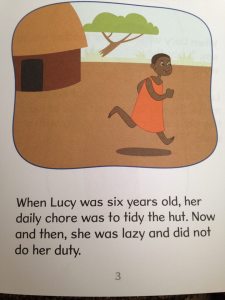December 30, 2015
Like many people, I went to the new Star Wars movie recently, thanks to the generosity of a visiting family member. Unlike many people, however, I went with my whole family, including my 6-year-old.
The 6-year-old was not into it, at all. “This is boring,” she called out loudly at one point, followed by repeated loud whispering: “When will this be over?”
So, I didn’t make it through the whole movie. She and I headed out, crawling one last time over the unforgiving legs of the devoted Star Wars fans in our row. My mumbled “sorry” to those who have been waiting since 1977 to see this film was cold comfort, I’m sure.
But I did see enough of the film to understand that the force–of resistance, of good–has been awakened. In case there is anyone who has yet to see the film, I won’t go much further. Anyway, this is all just an excuse for me to mention my favorite player in the whole Star Wars deal: Joseph Campbell.
this is all just an excuse for me to mention my favorite player in the whole Star Wars deal: Joseph Campbell.
Campbell was a brilliant guy who liked to focus on how connected we all are, through stories, archetypes, and the hero’s journey, which can belong to anyone. (George Lucas used Campbell’s great book, The Hero With a Thousand Faces, to give shape to the original Star Wars story.)
Back to education in 2015. Here are a few of the signs of life–or, the force, if you will–that struck me most this year:
- The people, united, pushed Reading Horizons out of the Minneapolis Public Schools. A couple of brave Minneapolis teachers, willing to speak up against what they knew was wrong (canned phonics materials bolstered by hideously offensive classroom readers), galvanized a forceful public movement.
- The petition to restart Minneapolis’s superintendent search. This petition–started by community folks–gathered over 1,000 signatures rapidly. The search has not been restarted (yet?), but it seems the petition–done the weekend before the school board voted on a superintendent candidate–may have helped block controversial interim superintendent Michael Goar from getting the permanent job.
- A quiet December 4 press release announced that Minneapolis’s Green Central Elementary School has received a full-service community school grant from the state. This means the school can do an extended survey of its community to find out what services people need and want in order to make Green Central a strong, successful community asset (and not a dismal test prep factory). Full-service schools are centered on “wrap-around services” that seek to serve the whole child. Here’s an example, from Brooklyn Center, MN.
- Minneapolis’s North High School Polars football team made it to state. This is the school administrators tried to shut down in 2010, in a “Disinvestment 101” exercise. North isn’t out of the woods yet, and won’t be, as long as market-based reforms (who benefits most from competition? autonomy? standardized tests?) continue to dominate public education policy. Reminder: As I discovered in 2015, North’s success isn’t all about sports.
- On a personal level, I have to give huge 2015 props to Minneapolis South High School teachers. When my oldest kid, a junior at South, turned to me recently and said, “Mom, what reparations do you think the Dakota should get?,” I knew she was in the right place. Her English class has been working on a unit about the Dakota in Minnesota, which is nothing like the British Lit I yawned my way through as a high school student (never fear: I came to appreciate it later, sort of). And then there are those hot like wasabi math teachers at South, adeptly tackling the “when will we ever use this?!” question….
I could go on, but I won’t, fearing you may be tempted to shout, “This is boring!”
Quickly, here is a list of some of my favorite non-Minneapolis education stories from 2015:
- Chicago’s Dyett High hunger strikers. Hard to call this a favorite, since people were literally starving themselves for local control of their school, which remains unresolved, but I have deep love for Jitu Brown and his crew.
- Dale Rusakoff’s book, The Prize. If you want an excellent look at the forces–good and bad–
NY Times reporter Hannah-Jones that shape education politics and reform today, read Rusakoff’s account of MarkZuckerberg’s money drop on the Newark Public Schools. Painfully real.
- Ira Glass’s “This American Story” portrait of reporter Nikole Hannah-Jones’s work covering education and that forgotten but successful gap-closing strategy: Integration. Really, listen to this!
Joseph Campbell was right: the hero does have a thousand faces. Can’t wait to see what that looks like in 2016.
Thank you so much to those of you who have donated so generously to this blog in 2015. I am very grateful for your support, and appreciate every little bit that comes my way!
[Exq_ppd_form]

 those key reasons–beyond the racist, sexist, classist, etc., materials Reading Horizons provided–was the fact that “Faith” is listed as the number one “
those key reasons–beyond the racist, sexist, classist, etc., materials Reading Horizons provided–was the fact that “Faith” is listed as the number one “











